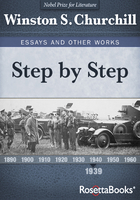"But in his pulse there was no throb,
Nor on his lips one dying sob;
Sigh, nor word, nor struggling breath
Heralded his way to death."
—"SIEGE OF CORINTH."
"My brain runs this way and that way; 't will not fix
On aught but vengeance."
—"DUKE OF GUISE."
I must now go back to an hour or two before Mary and her friends parted for the night. It might be about eight o'clock that evening, and the three Miss Carsons were sitting in their father's drawing-room. He was asleep in the dining-room, in his own comfortable chair. Mrs. Carson was (as was usual with her, when no particular excitement was going on) very poorly, and sitting upstairs in her dressing-room, indulging in the luxury of a headache. She was not well, certainly. "Wind in the head," the servants called it. But it was but the natural consequence of the state of mental and bodily idleness in which she was placed. Without education enough to value the resources of wealth and leisure, she was so circumstanced as to command both. It would have done her more good than all the ether and sal-volatile she was daily in the habit of swallowing, if she might have taken the work of one of her own housemaids for a week; made beds, rubbed tables, shaken carpets, and gone out into the fresh morning air, without all the paraphernalia of shawl, cloak, boa, fur boots, bonnet, and veil, in which she was equipped before setting out for an "airing," in the closely shut-up carriage.
So the three girls were by themselves in the comfortable, elegant, well-lighted drawing-room; and, like many similarly situated young ladies, they did not exactly know what to do to while away the time until the tea-hour. The elder two had been at a dancing-party the night before, and were listless and sleepy in consequence. One tried to read "Emerson's Essays," and fell asleep in the attempt; the other was turning over a parcel of new songs, in order to select what she liked. Amy, the youngest, was copying some manuscript music. The air was heavy with the fragrance of strongly-scented flowers, which sent out their night odours from an adjoining conservatory.
The clock on the chimney-piece chimed eight. Sophy (the sleeping sister) started up at the sound.
"What o'clock is that?" she asked.
"Eight," said Amy.
"O dear! how tired I am! Is Harry come in? Tea will rouse one up a little. Are you not worn out, Helen?"
"Yes; I am tired enough. One is good for nothing the day after a dance. Yet I don't feel weary at the time; I suppose it is the lateness of the hours."
"And yet, how could it be managed otherwise? So many don't dine till five or six, that one cannot begin before eight or nine; and then it takes a long time to get into the spirit of the evening. It is always more pleasant after supper than before."
"Well, I'm too tired to-night to reform the world in the matter of dances or balls. What are you copying, Amy?"
"Only that little Spanish air you sing, 'Quien quiera.'"
"What are you copying it for?" asked Helen.
"Harry asked me to do it for him this morning at breakfast-time—for
Miss Richardson, he said."
"For Jane Richardson!" said Sophy, as if a new idea were receiving strength in her mind.
"Do you think Harry means anything by his attention to her?" asked
Helen.
"Nay, I do not know anything more than you do; I can only observe and conjecture. What do you think, Helen?"
"Harry always likes to be of consequence to the belle of the room. If one girl is more admired than another, he likes to flutter about her, and seem to be on intimate terms with her. That is his way, and I have not noticed anything beyond that in his manner to Jane Richardson."
"But I don't think she knows it's only his way. Just watch her the next time we meet her when Harry is there, and see how she crimsons, and looks another way when she feels he is coming up to her. I think he sees it, too, and I think he is pleased with it."
"I dare say Harry would like well enough to turn the head of such a lovely girl as Jane Richardson. But I'm not convinced that he's in love, whatever she may be."
"Well, then!" said Sophy indignantly, "though it is our own brother, I do not think he is behaving very wrongly. The more I think of it, the more sure I am that she thinks he means something, and that he intends her to think so. And then, when he leaves off paying her attention"—
"Which will be as soon as a prettier girl makes her appearance," interrupted Helen.
"As soon as he leaves off paying her attention," resumed Sophy, "she will have many and many a heartache, and then she will harden herself into being a flirt, a feminine flirt, as he is a masculine flirt. Poor girl!"
"I don't like to hear you speak so of Harry," said Amy, looking up at Sophy.
"And I don't like to have to speak so, Amy, for I love him dearly. He is a good, kind brother, but I do think him vain, and I think he hardly knows the misery, the crime, to which indulged vanity may lead him."
Helen yawned.
"Oh! do you think we may ring for tea? Sleeping after dinner makes me so feverish."
"Yes, surely. Why should not we?" said the more energetic Sophy, pulling the bell with some determination.
"Tea, directly, Parker," said she authoritatively, as the man entered the room.
She was too little in the habit of reading expressions on the faces of others to notice Parker's countenance,
Yet it was striking. It was blanched to a dead whiteness; the lips compressed as if to keep within some tale of horror; the eyes distended and unnatural. It was a terror-stricken face.
The girls began to put away their music and books, in preparation for tea. The door slowly opened again, and this time it was the nurse who entered. I call her nurse, for such had been her office in bygone days, though now she held rather an anomalous situation in the family. Seamstress, attendant on the young ladies, keeper of the stores; only "Nurse" was still her name. She had lived longer with them than any other servant, and to her their manner was far less haughty than to the other domestics. She occasionally came into the drawing-room to look for things belonging to their father or mother, so it did not excite any surprise when she advanced into the room. They went on arranging their various articles of employment.
She wanted them to look up. She wanted them to read something in her face—her face so full of woe, of horror. But they went on without taking any notice. She coughed; not a natural cough; but one of those coughs which asks so plainly for remark.
"Dear nurse, what is the matter?" asked Amy. "Are not you well?"
"Is mamma ill?" asked Sophy quickly.
"Speak, speak, nurse!" said they all, as they saw her efforts to articulate choked by the convulsive rising in her throat. They clustered round her with eager faces, catching a glimpse of some terrible truth to be revealed.
"My dear young ladies! my dear girls!" she gasped out at length, and then she burst into tears.
"Oh! do tell us what it is, nurse!" said one. "Anything is better than this. Speak!"
"My children! I don't know how to break it to you. My dears, poor
Mr. Harry is brought home"—
"Brought home—BROUGHT home—how?" Instinctively they sank their voices to a whisper; but a fearful whisper it was. In the same low tone, as if afraid lest the walls, the furniture, the inanimate things which told of preparation for life and comfort, should hear, she answered—
"Dead!"
Amy clutched her nurse's arm, and fixed her eyes on her as if to know if such a tale could be true; and when she read its confirmation in those sad, mournful, unflinching eyes, she sank, without word or sound, down in a faint upon the floor. One sister sat down on an ottoman, and covered her face, to try and realise it. That was Sophy. Helen threw herself on the sofa, and burying her head in the pillows, tried to stifle the screams and moans which shook her frame.
The nurse stood silent. She had not told ALL.
"Tell me," said Sophy, looking up, and speaking in a hoarse voice, which told of the inward pain, "tell me, nurse! Is he DEAD, did you say? Have you sent for a doctor? Oh! send for one, send for one," continued she, her voice rising to shrillness, and starting to her feet. Helen lifted herself up, and looked, with breathless waiting, towards nurse.
"My dears, he is dead! But I have sent for a doctor. I have done all I could."
"When did he—when did they bring him home?" asked Sophy.
"Perhaps ten minutes ago. Before you rang for Parker."
"How did he die? Where did they find him? He looked so well. He always seemed so strong. Oh! are you sure he is dead?"
She went towards the door. Nurse laid her hand on her arm.
"Miss Sophy, I have not told you all. Can you bear to hear it? Remember, master is in the next room, and he knows nothing yet. Come, you must help me to tell him. Now, be quiet, dear! It was no common death he died!" She looked in her face as if trying to convey her meaning by her eyes.
Sophy's lips moved, but nurse could hear no sound.
"He has been shot as he was coming home along Turner Street, to-night."
Sophy went on with the motion of her lips, twitching them almost convulsively.
"My dear, you must rouse yourself, and remember your father and mother have yet to be told. Speak! Miss Sophy!"
But she could not; her whole face worked involuntarily. The nurse left the room, and almost immediately brought back some sal-volatile and water. Sophy drank it eagerly, and gave one or two deep gasps. Then she spoke in a calm, unnatural voice.
"What do you want me to do, nurse? Go to Helen and poor Amy. See, they want help."
"Poor creatures! we must let them alone for a bit. You must go to master; that's what I want you to do, Miss Sophy. You must break it to him, poor old gentleman! Come, he's asleep in the dining-room, and the men are waiting to speak to him."
Sophy went mechanically to the dining-room door.
"Oh! I cannot go in. I cannot tell him. What must I say?"
"I'll come with you, Miss Sophy. Break it to him by degrees."
"I can't, nurse. My head throbs so, I shall be sure to say the wrong thing."
However, she opened the door. There sat her father, the shaded light of the candle-lamp falling upon, and softening his marked features, while his snowy hair contrasted well with the deep crimson morocco of the chair. The newspaper he had been reading had dropped on the carpet by his side. He breathed regularly and deeply.
At that instant the words of Mrs. Hemans's song came full in Sophy's mind—
"Ye know not what ye do,
That call the slumberer back
From the realms unseen by you,
To life's dim weary track."
But this life's track would be to the bereaved father something more than dim and weary, hereafter.
"Papa," said she softly. He did not stir.
"Papa!" she exclaimed, somewhat louder.
He started up, half awake.
"Tea is ready, is it?" and he yawned.
"No! papa, but something very dreadful—very sad, has happened!"
He was gaping so loud that he did not catch the words she uttered, and did not see the expression of her face.
"Master Henry has not come back," said nurse. Her voice, heard in unusual speech to him, arrested his attention, and rubbing his eyes, he looked at the servant.
"Harry! oh, no! he had to attend a meeting of the masters about these cursed turn-outs. I don't expect him yet. What are you looking at me so strangely for, Sophy?"
"O papa, Harry is come back," said she, bursting into tears.
"What do you mean?" said he, startled into an impatient consciousness that something was wrong. "One of you says he is not come home, and the other says he is. Now, that's nonsense! Tell me at once what's the matter. Did he go on horseback to town? Is he thrown? Speak, child, can't you?"
"No! he's not been thrown, papa," said Sophy sadly.
"But he's badly hurt," put in the nurse, desirous to be drawing his anxiety to a point.
"Hurt? Where? How? Have you sent for a doctor?" said he, hastily rising, as if to leave the room.
"Yes, papa, we've sent for a doctor—but I'm afraid—-I believe it's of no use."
He looked at her for a moment, and in her face he read the truth.
His son, his only son, was dead.
He sank back in his chair, and hid his face in his hands, and bowed his head upon the table. The strong mahogany dining-table shook and rattled under his agony.
Sophy went and put her arms round his bowed neck.
"Go! you are not Harry," said he; but the action roused him.
"Where is he? where is the"—said he, with his strong face set into the lines of anguish, by two minutes of such intense woe.
"In the servants' hall," said nurse. "Two policemen and another man brought him home. They would be glad to speak to you when you are able, sir."
"I am now able," replied he. At first when he stood up he tottered. But steadying himself, he walked, as firmly as a soldier on drill, to the door. Then he turned back and poured out a glass of wine from the decanter which yet remained on the table. His eye caught the wine-glass which Harry had used but two or three hours before. He sighed a long quivering sigh, and then mastering himself again, he left the room.
"You had better go back to your sisters, Miss Sophy," said nurse.
Miss Carson went. She could not face death yet.
The nurse followed Mr. Carson to the servants' hall. There on their dinner-table lay the poor dead body. The men who had brought it were sitting near the fire, while several of the servants stood round the table, gazing at the remains.
THE REMAINS!
One or two were crying; one or two were whispering; awed into a strange stillness of voice and action by the presence of the dead. When Mr. Carson came in they all drew back and looked at him with the reverence due to sorrow.
He went forward and gazed long and fondly on the calm, dead face; then he bent down and kissed the lips yet crimson with life. The policemen had advanced, and stood ready to be questioned. But at first the old man's mind could only take in the idea of death; slowly, slowly came the conception of violence, of murder. "How did he die?" he groaned forth.
The policemen looked at each other. Then one began, and stated that having heard the report of a gun in Turner Street, he had turned down that way (a lonely, unfrequented way Mr. Carson knew, but a short cut to his garden door, of which Harry had a key); that as he (the policeman) came nearer, he had heard footsteps as of a man running away; but the evening was so dark (the moon not having yet risen) that he could see no one twenty yards off. That he had even been startled when close to the body by seeing it lying across the path at his feet. That he had sprung his rattle; and when another policeman came up, by the light of the lantern they had discovered who it was that had been killed. That they believed him to be dead when they first took him up, as he had never moved, spoken, or breathed. That intelligence of the murder had been sent to the superintendent, who would probably soon be here. That two or three policemen were still about the place where the murder was committed, seeking out for some trace of the murderer. Having said this, they stopped speaking.
Mr. Carson had listened attentively, never taking his eyes off the dead body. When they had ended, he said—
"Where was he shot?"
They lifted up some of the thick chestnut curls, and showed a blue spot (you could hardly call it a hole, the flesh had closed so much over it) in the left temple. A deadly aim! And yet it was so dark a night!
"He must have been close upon him," said one policeman.
"And have had him between him and the sky," added the other.
There was a little commotion at the door of the room, and there stood poor Mrs. Carson, the mother.
She had heard unusual noises in the house, and had sent down her maid (much more a companion to her than her highly-educated daughters) to discover what was going on. But the maid either forgot, or dreaded, to return; and with nervous impatience Mrs. Carson came down herself, and had traced the hum and buzz of voices to the servants' hall.
Mr. Carson turned round. But he could not leave the dead for any one living.
"Take her away, nurse. It is no sight for her. Tell Miss Sophy to go to her mother." His eyes were again fixed on the dead face of his son.
Presently Mrs. Carson's hysterical cries were heard all over the house. Her husband shuddered at the outward expression of the agony which was rending his heart.
Then the police superintendent came, and after him the doctor. The latter went through all the forms of ascertaining death, without uttering a word, and when at the conclusion of the operation of opening a vein, from which no blood flowed, he shook his head, all present understood the confirmation of their previous belief. The superintendent asked to speak to Mr. Carson in private.
"It was just what I was going to request of you," answered he; so he led the way into the dining-room, with the wine-glass still on the table.
The door was carefully shut, and both sat down, each apparently waiting for the other to begin.
At last Mr. Carson spoke.
"You probably have heard that I am a rich man."
The superintendent bowed in assent.
"Well, sir, half—nay, if necessary, the whole of my fortune I will give to have the murderer brought to the gallows."
"Every exertion, you may be sure, sir, shall be used on our part; but probably offering a handsome reward might accelerate the discovery of the murderer. But what I wanted particularly to tell you, sir, is that one of my men has already got some clue, and that another (who accompanied me here) has within this quarter of an hour found a gun in the field which the murderer crossed, and which he probably threw away when pursued, as encumbering his flight. I have not the smallest doubt of discovering the murderer."
"What do you call a handsome reward?" said Mr. Carson.
"Well, sir, three, or five hundred pounds is a munificent reward: more than will probably be required as a temptation to any accomplice."
"Make it a thousand," said Mr. Carson decisively. "It's the doing of those damned turn-outs."
"I imagine not," said the superintendent. "Some days ago the man I was naming to you before, reported to the inspector when he came on his beat, that he had to separate your son from a young man, who by his dress he believed to be employed in a foundry; that the man had thrown Mr. Carson down, and seemed inclined to proceed to more violence, when the policeman came up and interfered. Indeed, my man wished to give him in charge for an assault, but Mr. Carson would not allow that to be done."
"Just like him!—noble fellow!" murmured the father.
"But after your son had left, the man made use of some pretty strong threats. And it's rather a curious coincidence that this scuffle took place in the very same spot where the murder was committed; in Turner Street."
There was some one knocking at the door of the room. It was Sophy, who beckoned her father out, and then asked him, in an awestruck whisper, to come upstairs and speak to her mother.
"She will not leave Harry, and talks so strangely. Indeed—indeed— papa, I think she has lost her senses."
And the poor girl sobbed bitterly.
"Where is she?" asked Mr. Carson.
"In his room."
They went upstairs rapidly and silently. It was a large comfortable bedroom; too large to be well lighted by the flaring, flickering kitchen-candle which had been hastily snatched up, and now stood on the dressing-table.
On the bed, surrounded by its heavy, pall-like green curtains, lay the dead son. They had carried him up, and laid him down, as tenderly as though they feared to waken him; and, indeed, it looked more like sleep than death, so very calm and full of repose was the face. You saw, too, the chiselled beauty of the features much more perfectly than when the brilliant colouring of life had distracted your attention. There was a peace about him which told that death had come too instantaneously to give any previous pain.
In a chair, at the head of the bed, sat the mother—smiling. She held one of the hands (rapidly stiffening, even in her warm grasp), and gently stroked the back of it, with the endearing caress she had used to all her children when young.
"I am glad you are come," said she, looking up at her husband, and still smiling. "Harry is so full of fun, he always has something new to amuse us with; and now he pretends he is asleep, and that we can't waken him. Look! he is smiling now; he hears I have found him out. Look!"
And, in truth, the lips, in the rest of death, did look as though they wore a smile, and the waving light of the unsnuffed candle almost made them seem to move.
"Look, Amy," said she to her youngest child, who knelt at her feet, trying to soothe her, by kissing her garments.
"Oh, he was always a rogue! You remember, don't you, love? how full of play he was as a baby; hiding his face under my arm, when you wanted to play with him. Always a rogue, Harry!"
"We must get her away, sir," said nurse; "you know there is much to be done before"—
"I understand, nurse." said the father, hastily interrupting her in dread of the distinct words which would tell of the changes of mortality.
"Come, love," said he to his wife. "I want you to come with me. I want to speak to you downstairs."
"I'm coming," said she, rising; "perhaps, after all, nurse, he's really tired, and would be glad to sleep. Don't let him get cold, though,—he feels rather chilly," continued she, after she had bent down, and kissed the pale lips.
Her husband put his arm around her waist, and they left the room. Then the three sisters burst into unrestrained wailings. They were startled into the reality of life and death. And yet in the midst of shrieks and moans, of shivering and chattering of teeth, Sophy's eye caught the calm beauty of the dead; so calm amidst such violence, and she hushed her emotion.
"Come," said she to her sisters, "nurse wants us to go; and besides, we ought to be with mamma. Papa told the man he was talking to, when I went for him, to wait, and she must not be left."
Meanwhile, the superintendent had taken a candle, and was examining the engravings that hung round the dining-room. It was so common to him to be acquainted with crime, that he was far from feeling all his interest absorbed in the present case of violence, although he could not help having much anxiety to detect the murderer. He was busy looking at the only oil-painting in the room (a youth of eighteen or so, in a fancy dress), and conjecturing its identity with the young man so mysteriously dead, when the door opened, and Mr. Carson returned. Stern as he had looked before leaving the room, he looked far sterner now. His face was hardened into deep-purposed wrath.
"I beg your pardon, sir, for leaving you." The superintendent bowed. They sat down, and spoke long together. One by one the policemen were called in, and questioned.
All through the night there was bustle and commotion in the house. Nobody thought of going to bed. It seemed strange to Sophy to hear nurse summoned from her mother's side to supper, in the middle of the night, and still stranger that she could go. The necessity of eating and drinking seemed out of place in the house of death.
When night was passing into morning, the dining-room door opened, and two persons' steps were heard along the hall. The superintendent was leaving at last. Mr. Carson stood on the front-door step, feeling the refreshment of the caller morning air, and seeing the starlight fade away into dawn.
"You will not forget," said he. "I trust to you." The policeman bowed.
"Spare no money. The only purpose for which I now value wealth is to have the murderer arrested, and brought to justice. My hope in life now is to see him sentenced to death. Offer any rewards. Name a thousand pounds in the placards. Come to me at any hour, night or day, if that be required. All I ask of you is, to get the murderer hanged. Next week, if possible—to-day is Friday. Surely with the clues you already possess, you can muster up evidence sufficient to have him tried next week."
"He may easily request an adjournment of his trial, on the ground of the shortness of the notice," said the superintendent.
"Oppose it, if possible. I will see that the first lawyers are employed. I shall know no rest while he lives."
"Everything shall be done, sir."
"You will arrange with the coroner. Ten o'clock if convenient."
The superintendent took leave.
Mr. Carson stood on the step, dreading to shut out the light and air, and return into the haunted, gloomy house.
"My son! my son!" he said at last. "But you shall be avenged, my poor murdered boy."
Ay! to avenge his wrongs the murderer had singled out his victim, and with one fell action had taken away the life that God had given. To avenge his child's death, the old man lived on; with the single purpose in his heart of vengeance on the murderer. True, his vengeance was sanctioned by law, but was it the less revenge?
Are ye worshippers of Christ? or of Alecto?
Oh! Orestes, you would have made a very tolerable Christian of the nineteenth century!















